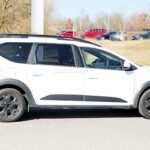
Volkswagen ADMT (Autonomous Driving Mobility & Transport) formed a strategic partnership with Uber to deploy thousands of fully autonomous, all-electric ID. Buzz AD’s vehicles across major U.S. cities over the next decade.
The partners plan to complete test operations by late 2025 and launch commercial autonomous vehicle services in Los Angeles in 2026. Initial testing will include human safety drivers to verify safety and performance, with each stage requiring U.S. regulatory approval.
MOIA, Volkswagen AG’s autonomous mobility brand, will offer a software-based solution for ID. Buzz AD deployment on Uber’s platform. MOIA will develop core infrastructure for autonomous services, including vehicle operations, management, and software updates.
This collaboration marks a strategic move for Volkswagen Group to commercialize autonomous technology and supports Uber’s plan to expand its future mobility platform.
The Volkswagen ADMT-Uber partnership marks a shift in autonomous mobility. With slower-than-expected commercialization, the industry now focuses on steady, incremental service expansion.
Volkswagen’s strategy integrates the ID. Buzz AD with MOIA’s software platform. This vertical integration, covering hardware, data collection, operations, and service management, positions Volkswagen to compete with autonomous driving leaders like Tesla, GM’s Cruise, and Alphabet’s Waymo.
Uber prioritizes external partnerships over in-house development to expand its autonomous services. Following its collaboration with Waymo in Phoenix, the Volkswagen partnership aims to accelerate market expansion.
The choice of Los Angeles for the launch is significant. LA offers a prime testing ground for autonomous vehicles due to its regulatory environment, infrastructure, and demand for mobility services. With Waymo and Cruise expanding there, the Volkswagen-Uber team faces strong competition to establish a foothold.
This partnership highlights two key trends in autonomous mobility: hardware-software integration and cross-platform collaboration. Success depends on the smooth execution of initial testing and regulatory approvals.

























